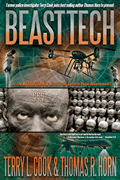PREAMBLE DISSECTED
By Mary E. Webster
July 26, 2014
NewsWithViews.com
I received an email with a brilliant request: "I think it might be useful if you could dissect the Constitution and then reference each part to the Federalist Papers..."
I call it a "brilliant" request because this was the information I was looking for in the fall of 1994 when I started my quest to find out what each clause in the United States Constitution meant to the people who ratified it. However, at the time, I didn't realize that The Federalist Papers held the answers to my questions. I am so happy that the person who emailed me had the knowledge to make such a pertinent request.
In 2010, I published The United States Constitution: Annotated with The Federalist Papers in Modern English. I told the email writer about the book. Although few people even know that this book is available, it has gotten a couple of great reviews on Amazon. One reader says: "It's great the way she coordinates each section of the Constitution with the explanations given in each Federalist Paper essay. She works her way thru the entire Constitution starting with the Preamble. If the light went on when you read the 5000 Year Leap, then the light will become even brighter after reading this! There will no longer be any doubt in your mind that the current Federal Government has grossly overstepped its bounds and is not the type of government our Founding Fathers had intended for us."
I want to share excerpts from the 66-page section of the book that deals with the Preamble of the Constitution:
Despite being a short, clearly written document, many people have never read the United States Constitution. For the majority of my life, I was part of that group. In fact, I had been studying The Federalist Papers for several weeks before I read the entire Constitution. I had heard so many arguments about the "meaning" of the Constitution and the need for scholarly and court interpretation that I assumed that it was highly ambiguous.
Even after reading the Constitution (and discovering its clarity), I still didn't appreciate the importance of the Preamble and, most importantly, the first seven words.
There's an original Star Trek episode where a group of people are fighting for freedom against their tyrannical rulers. I first saw the episode in the 1970s when I was worried about the direction of our federal government but knew nothing about our Constitution. I was completely surprised when it was revealed that the freedom fighters' sacred document was the Constitution of the United States. And I really didn't understand why Kirk read the first seven words of the document with such deep reverence.
If I would have found the document at that time in my life, I wouldn't have known its significance. Now I understand that these are some of the most important words ever written:
We, the people of the United States,
This [Preamble] recognizes popular rights. And it is more effective than the large number of aphorisms that make up our State bills of rights, which would sound much better in a treatise on ethics than in a constitution of government. 84[8]
Government is necessary. The people must cede some of their natural rights to the government to give it some powers. 2[2]
…Enlightened citizens will know the difference between legal authority and illegal usurpation of authority… The people are the natural guardians of the Constitution. 16[10]
…The people hold the whole power of the government… 21[5]
in Order to form a more perfect Union,
We return to the fundamental question: Why should the States unite under one federal government? These arguments also explain why President Lincoln fought to re-unify the country.
It may seem like everyone agrees that remaining united is important. But some opponents of the new Constitution say thirteen States are too many. They argue that we must break into several separate confederacies. The alternative to adoption of the new Constitution is dismemberment of the Union. Therefore, I will examine the advantages of staying united, the probable dangers, and certain evils of dissolution... 1[8]
We have seen that we need a Union:
to protect
us from foreign danger
to keep the peace among ourselves
to guard our commerce and other common interests,
as the only substitute for those military establishments that have subverted the liberties of the Old World.
as the antidote to diseases of faction that have destroyed other popular governments. Alarming symptoms of them have already appeared in ours.
The last objection to discuss is based on the size of the Union. Some people fear that a republic isn’t practical in such a large geographic area. Opponents of the new Constitution use this prejudice to invent problems because they can’t find solid objections. 14[1]
establish Justice,
…Justice is the final goal of civil society and government. It will be pursued until it is obtained or until liberty is lost in the pursuit… 51[10]
insure domestic Tranquility,
…Keeping the Union will restrain local factions and insurrections. And it will restrain the ambition of powerful people in single States who could become despots… 85[2]
provide for the common defence,
An energetic Constitution is necessary to preserve the Union.
Our inquiry covers four topics:
The
reasons for having a federal government.
The amount of power the federal government needs to fulfill its purposes.
The people who should control that power.
The organization of the federal government.
The
most important reasons for a union and federal government are:
Defense.
To keep
the peace against both internal turmoil and external attacks.
To regulate commerce with other nations and between the States.
To supervise our political and commercial interests with foreign countries.
23[1]
We have seen that we need a Union: as our bulwark against foreign danger... 14[1]
promote the general Welfare,
The public firmly believes that greater government energy is essential to the welfare and prosperity of the community. 26[2]
and secure the Blessings of Liberty to ourselves, and our Posterity,
"Liberty" is part of the foundation of the United States Constitution. "Liberty" makes the United States different than all other countries. This is how Webster's Third International Dictionary defines "liberty":
liberty 1 : the quality or state of being free: a (1) : freedom from usu. external restraint or compulsion : the power to do as one pleases (2) : a condition of legal non-restraint of natural powers -- compare PRIVILEGE 1e b : exemption from subjection to the will of another claiming ownership or services -- compare BONDAGE, SERFDOM, SLAVERY c : freedom from arbitrary or despotic control d : the power of choice : freedom from necessity : freedom from compulsion or constraint in the act of willing something e (1) : CIVIL LIBERTY (2) : POLITICAL LIBERTY (3) : INDIVIDUAL LIBERTY (4) : PERSONAL LIBERTY
I had been reading Federalist Paper #1 for about two weeks when I got to paragraph 5. I was amazed! The author explained how people like Lenin and Hitler get power. It also explains how some politicians in the United States have been elected, despite their obvious plans to limit liberty.
I don’t mean, by anything said here, to criticize the current Congress. I know they had to act. They had to overstep their constitutional limits. But doesn’t this prove that it is dangerous when a government doesn’t have the necessary powers to fulfill its responsibilities? It is continually exposed to the dangers of dissolution or usurpation. 38[11]
|
…we
should never even desire no partisanship, because an extinction of parties
implies either a massive threat of danger or an absolute extinction of
liberty. 50[10]
If the people of America ever tolerate a law that does not apply to legislators,
as well as on the people, the people will be prepared to tolerate anything
but liberty. 57[13]
Liberty can be endangered by the abuses of liberty as well as by the abuses
of power. There are many examples of both. And the former, rather than
the latter, are apparently most to be feared by the United States. 63[17]
do ordain and establish this
…the proposed Constitution is nothing more than pieces of paper, unless the people approve it. 40[15]
Constitution for the United States of America
…Enlightened citizens will know the difference between legal authority and illegal usurpation of authority… The people are the natural guardians of the Constitution. 16[10]
© 2014 Mary E. Webster - All Rights Reserved
Mary E Webster, a graduate of St. Paul College and the University of Iowa, started studying The Federalist Papers in 1994. Her books, including a 10th-grade reading level translation of the Papers, The Federalist Papers: Modern English Edition Two, and The U.S. Constitution: Annotated with The Federalist Papers in Modern English make the timeless arguments within the Papers available to everyone. Webster is related to Noah and Daniel Webster and a direct descendent of several signers of the Mayflower Compact.
Website: Mary.Webster.org
Email: marywebster00@gmail.com














 Share
This Article
Share
This Article






